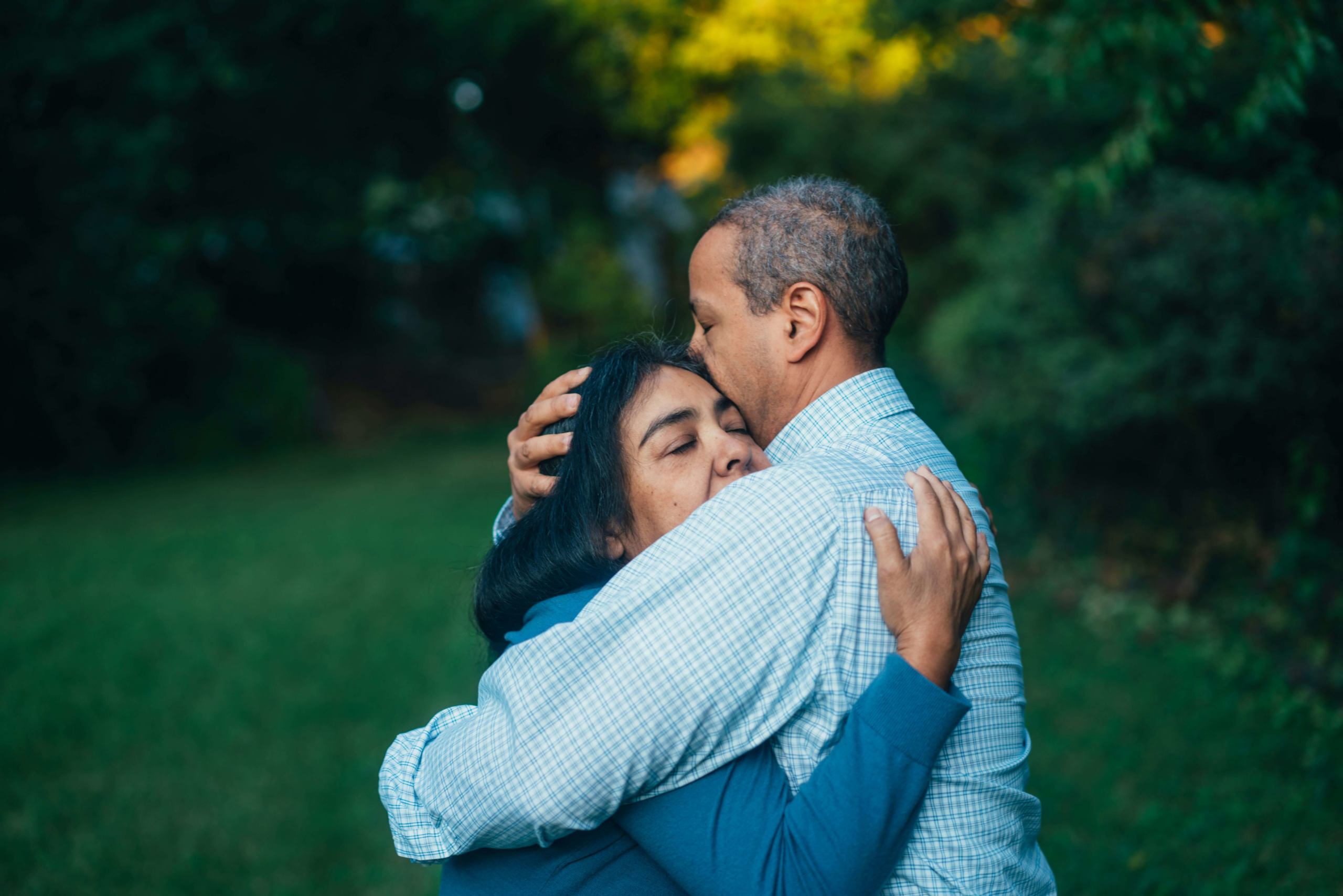The holidays have passed and for many that time of year is fraught with distress, triggers of the past, or even a felt sense of persistent anxiety and malaise. Let’s face it, it’s not always “the most wonderful time of the year.” It may be that “going home” for the holidays brings unwanted tension. You may have found yourself alone, either by choice or not. You could have been halfway across the globe and missing home and the familiar. Maybe you awoke to a holiday that just didn’t look like it used to look. Whatever the case, if this is you, then this blog post about unresolved relational trauma may bring some clarity to the origin of the way you felt over the course of the holiday season.
The holidays are stressful. That’s a given. Feelings of anxiety can be part of any holiday as life amps up and the lists get long; increased anxiety is common. But, what if the feelings are intense and pervasive and you don’t recover? Perhaps you notice this every holiday? Or, what if your baseline is anxiety and fear and the holidays only serve to intensify your already heightened state? If these questions resonate, I invite you to read further to learn more about my therapeutic approach and how Trauma Therapy can help you.
Relational Trauma: Recognizing Its Signs and Effects
Unresolved relational trauma is relentless in its insistence to be known and there are some clear signs to look out for. And, the holidays are notorious for bringing up unresolved issues, including unhealed trauma. As the new year begins, this may be a good time to reflect on your experience of the holidays. You may or may not have unresolved trauma but here are seven key indicators that can suggest the presence of it. I also offer a few questions to ask yourself, questions that may help you discern if you or a loved one has unresolved trauma. It’s important to note that signs show up in many ways depending on the trauma and the individual but most who experience relational trauma describe the following seven pervading symptoms:
1. Persistent Anxiety and Fear
Do you find yourself grappling with persistent anxiety or fear, seemingly without an identifiable cause? Unresolved relational trauma can manifest in heightened states of alertness, leading to chronic anxiety. If your nervous system remains on high alert, it may be an indication that past trauma is influencing your present emotional state. Were you on high alert during the holidays? Probing your world for the next shoe to drop at any given moment? In a state of fight or flight?
2. Difficulty Establishing Trust
Building and maintaining trust in relationships can be challenging for those carrying unresolved trauma. Do you find it difficult to trust others, even when there is no apparent reason for skepticism? Unhealed emotional wounds can impact your ability to establish secure connections, leaving you guarded and hesitant in your interactions. Did you find yourself guarded at the holiday table, staying small and quiet for what seems like no apparent reason?
3. Recurring Relationship Patterns
Have you noticed a pattern of unhealthy dynamics in your relationships? Unresolved relational trauma can contribute to the repetition of dysfunctional patterns, as you may unknowingly recreate past scenarios in an attempt to resolve or understand your trauma. Identifying and breaking these patterns is a crucial step towards healing. Was there a particular dynamic, person, or situation that triggered you? One that you have noticed repeatedly and that shows up, particularly during the holidays?
4. Avoidance of Emotional Intimacy
Are you inclined to avoid emotional intimacy or vulnerability? Unresolved trauma can instill a fear of opening up and sharing emotions, making it challenging to form deep and meaningful connections. Recognizing this pattern is essential for fostering healthier relationships and addressing the root causes of emotional distance. Can you recall if you felt connected to yourself, loved ones, or others during the holidays? When was the last time you felt true connection – felt seen and heard by others and present enough to see and hear others?
5. Overwhelming Emotions and Mood Swings
Do you experience intense and fluctuating emotions that seem disproportionate to the current situation? Unhealed trauma can contribute to emotional instability, leading to sudden mood swings and overwhelming feelings. Understanding the connection between your emotional reactions and past trauma is a crucial step towards emotional regulation and well-being. Did you feel ungrounded? Have a sense that you were all over the place? Perhaps even exhausted from the ups and downs of intense emotion?
6. Chronic Physical Symptoms
Did you know that unresolved trauma can manifest as physical symptoms? Chronic pain, headaches, and digestive issues are just a few examples of how emotional distress can impact the body. If you find yourself dealing with persistent physical symptoms without a clear medical explanation, it may be worth exploring the emotional aspects of your well-being. Did any physical symptoms increase during the holidays? Is there a spot in your body that always flares? This may be where your body is holding trauma.
7. Difficulty Setting Boundaries
Establishing and maintaining healthy boundaries is a key aspect of well-functioning relationships. Individuals with unresolved trauma may struggle to set and enforce boundaries, often due to a fear of rejection or abandonment. Learning to assert your needs and boundaries is crucial for building relationships based on mutual respect. Did you accept invitations that you knew would be triggering in order to please another? Decline invitations only to find yourself saddened to miss out? Did you overbuy, overextend, or overdo in order to please others?
Recognizing the Signs of Relational Trauma is the First Step Towards Healing
Unresolved trauma is relentless. It will show up and the holidays are the perfect recipe for triggering trauma wounds. Recognizing the signs of unresolved relational trauma is the first step towards healing. The above indicators are common signs of unresolved trauma. If these signs resonate and feel pervasive, I invite you to consider the questions thoughtfully and in light of your holiday experience and past relationships. Perhaps journal or discuss with a trusted friend or loved one? If comfortable, maybe ask a trusted other for their opinion.Often your loved ones can see things that, because of your trauma, you cannot see.
If you feel you or someone else you love has unresolved trauma reach out to a trauma therapist to learn more and to hear about options to treat trauma. If it’s a loved one you are concerned about, gently express your love and concern. Letting them know you see them could be the beginning of their healing.
Start Trauma Therapy for your Relational Trauma in Texas with Lysle Shaw Psychotherapy
Ready to start your journey towards healing from relational trauma ? As a trauma therapist, I specialize in providing compassionate and effective therapy for relational trauma, helping you navigate the challenges and reclaim a sense of safety and well-being. Whether you’re struggling with past experiences that continue to impact your relationships or seeking support to address current difficulties, I work to meet your unique needs. Take the first step towards healing by reaching out to me at Lysle Shaw Psychotherapy. Follow the steps below:
- Reach out today for a free consultation.
- Heal from your unresolved relational trauma today!
Other Therapy Services Offered at Lysle Shaw Psychotherapy in Austin, Houston, and throughout Texas
At Lysle Shaw Psychotherapy, I provide a wide range of therapeutic services extending beyond

Recent Posts
Can You Heal From Relational Trauma? Part 1
Absolutely, you can heal from relational trauma! In this series of blog posts, I'm excited to introduce you to Gretchen Schmelzer’s Trail Guide to the 5-Phase Cycle of Healing Repeated Trauma. Gretchen, a psychologist, trauma [...]
Relationships Matter! Insights from an Online Relational Therapist in Houston, TX
Spring is upon us and here in Houston, Texas, it's likely to phase into summer heat soon. We happily got a cool snap this week and I found myself able to do my runs under [...]
Can You Recover from Religious and Spiritual Trauma? Exploring With Online Trauma Therapy in Austin, TX
A Brief Look at Trauma Before we look at religious and spiritual trauma let’s look at a brief definition of trauma. Trauma is any event that overwhelms a person’s ability to cope with it. This [...]







